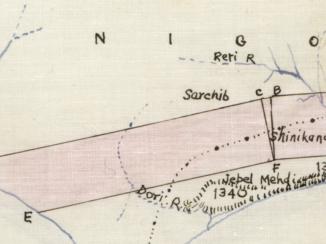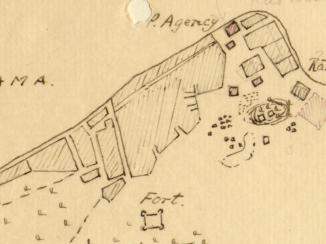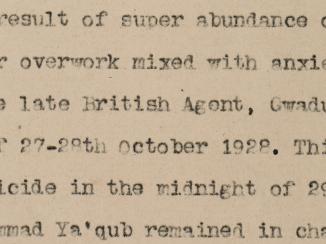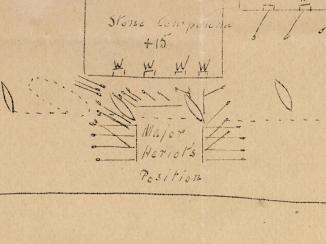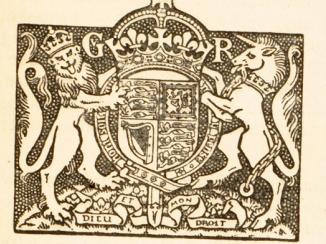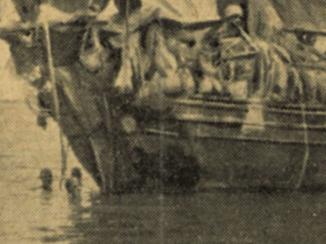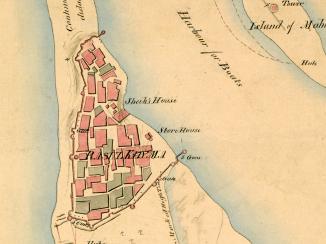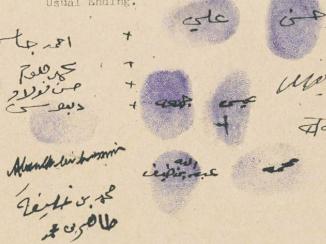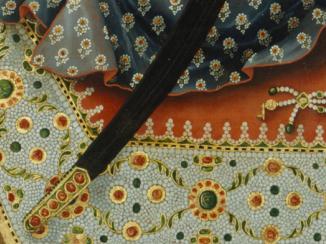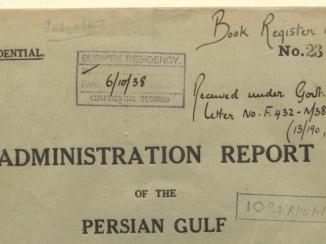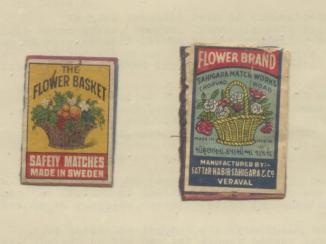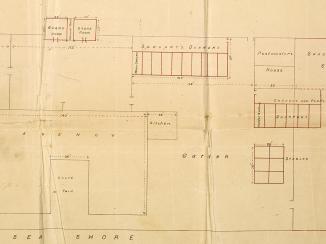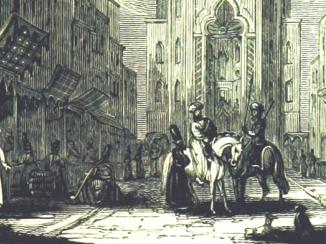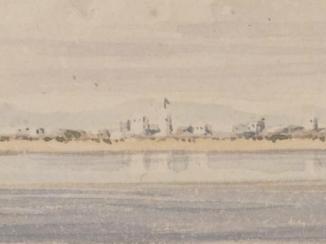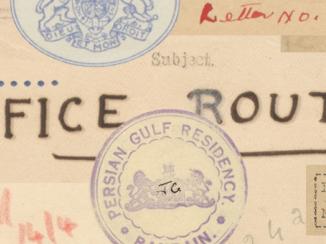Overview
While much of the world was experiencing the effects of global war in the first half of the 1940s, the Gulf by contrast was an oasis of calm. The British administration in the region continued to monitor events through a series of administration reports produced for the Government of India.
The reports summarise important information and notable events year by year, concluding in 1947 with the end of the Government of India itself. By this time the peoples of the Gulf and the British authorities were facing the uncertainties and challenges of the new postwar world.
The Effect on the Gulf of the Second World War
The outbreak of war in 1939 tested Britain’s position in the Gulf. The Political Resident’s review for 1940 noted that with few exceptions public opinion in the Arab sheikhdoms had been ‘consistently pro-British’. This is repeated in the later reports with particular reference to the Gulf’s ruling families. And the British reciprocated by recognising their contributions with the award of honours, such as the award of Knight Commander of the Star of India (KCSI) to the Sheikh of Kuwait in 1944.

Aside from a single ineffectual bombing raid, launched by Italian aircraft on oil facilities in Saudi Arabia and Bahrain in October 1940, the Gulf escaped remarkably lightly from the troubles elsewhere. The 1941 report states that the Gulf enjoyed ‘almost perfect peace’ throughout the year, and in 1945 the Allied victories over Germany and Japan were both said to have been ‘warmly welcomed’. However, prices did rise, and wartime restrictions on the export of rice from India meant that ordinary people had to cope with types of cereal they had previously never eaten: by 1944 the Political Resident A senior ranking political representative (equivalent to a Consul General) from the diplomatic corps of the Government of India or one of its subordinate provincial governments, in charge of a Political Residency. was reporting hardship and malnutrition as a result.
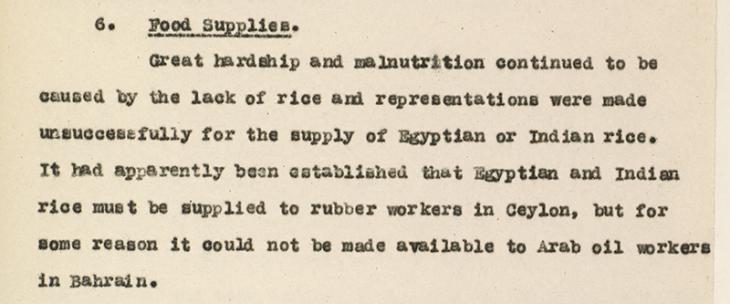
Oil Industry and Economic Conditions
The war did retard the progress of oil exploration to some extent, with the cancellation of planned geological survey trips to Muscat and the Trucial Coast A name used by Britain from the nineteenth century to 1971 to refer to the present-day United Arab Emirates. in 1940, and the enforced wartime destruction of trial wells at Qatar, but the oil industry in Bahrain continued to grow robustly. Bahrain was the principal source of oil for the Royal Navy throughout the war, and by 1946 the Bahrain Petroleum Company was producing 25,000 barrels a day.

By 1947, production of oil at Kuwait was also increasing rapidly, although the Resident noted that, in view of the fact that Kuwait was ‘capable of little development’, it was hard to know how the large royalties could best be spent. This problem was eventually solved in the 1950s as Kuwait became a major international investor, particularly in the United Kingdom. The Gulf’s historic pearl trade, however, had slumped by 1947 as a result of an embargo by newly-independent India on the import of pearls. India had also placed restrictions on the import of dried dates from Muscat, the economy of which suffered as a result.
Transfer of the Political Residency
A major change in this period was the final transfer of the Political Residency An office of the East India Company and, later, of the British Raj, established in the provinces and regions considered part of, or under the influence of, British India. to Bahrain after one hundred and twenty-four years at Bushire. The transfer was recognition of the way the Arab side of the Gulf had overtaken the Persian side in importance for Britain, especially in the 1920s and 1930s with the advent of oil and vastly improved communications. The process of transfer began in May 1946 and was complete by September.
The Postwar Era
The end of Britain’s Indian Empire was not followed by immediate withdrawal from the Gulf. The simple reason for this was oil. The Gulf remained Britain’s major source for oil imports and, to meet the cost of the oil, became an increasingly important market for British goods and services. This meant that Britain continued to provide political and military support to the ruling families in the Gulf states, and it was not until the 1950s and the rise of Arab nationalism that the new political arrangement was threatened.


